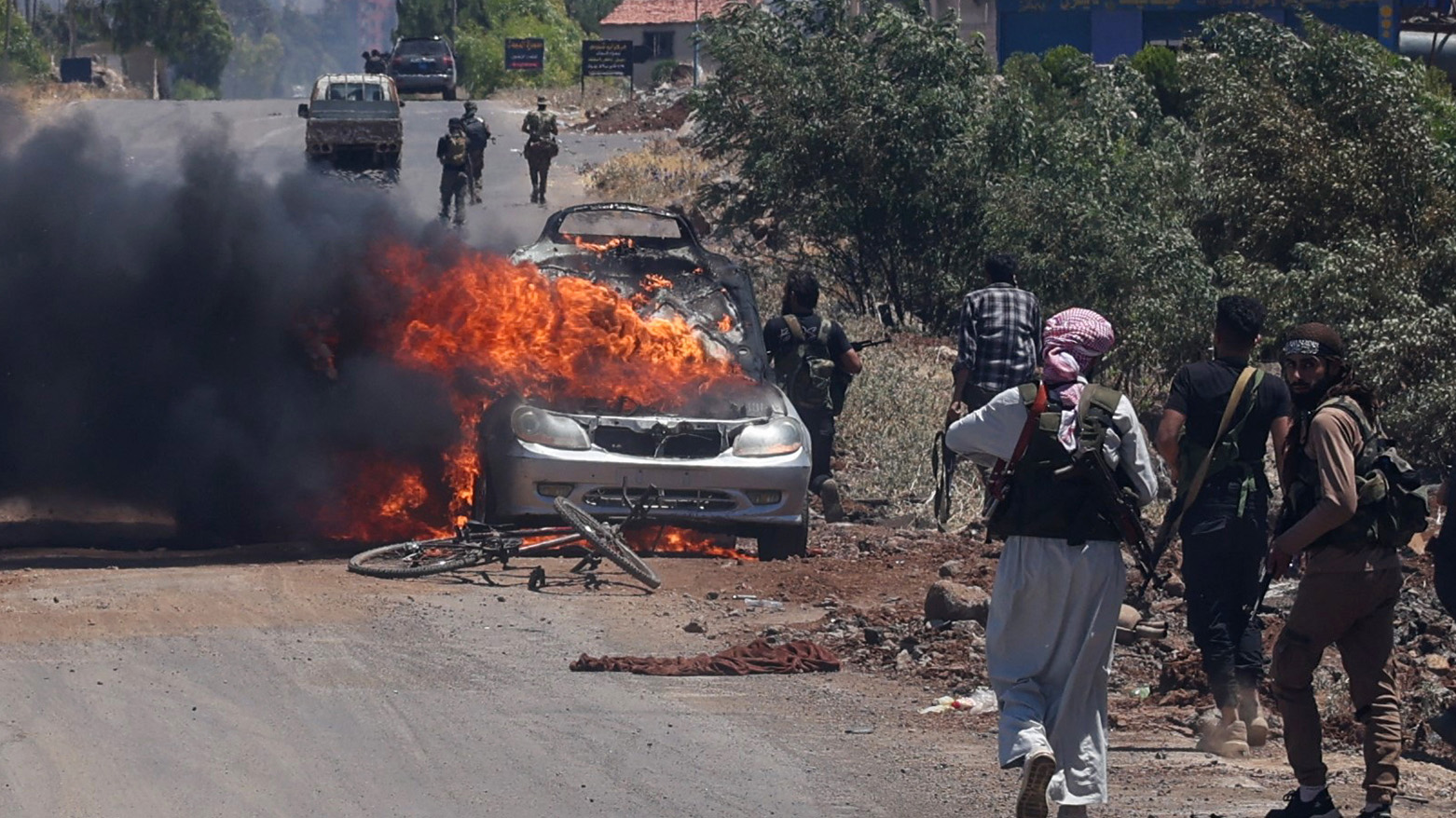Damascus Declares Nationwide Ceasefire Amid Escalating Southern Violence
Damascus declares immediate ceasefire in southern Syria following deadly clashes in Suwayda, urging all parties to halt hostilities. The government warns violations will face legal action as security forces deploy to enforce the truce and protect civilians.

By Ahour Qadi
ERBIL (Kurdistan24) – The Syrian Arab Republic on Saturday announced a comprehensive and immediate ceasefire in the country’s southern regions, marking a pivotal development in a volatile conflict that has led to extensive bloodshed and displacement in recent weeks, particularly in the province of Suwayda.
In an official statement issued by the Syrian Presidency, the government emphasized its national and humanitarian responsibility, declaring the ceasefire as a means to safeguard Syrian blood, preserve the unity of the country, and uphold public stability.
Ceasefire to Stabilize South and Enable Humanitarian Access
The presidency urged all parties, without exception, to fully commit to halting hostilities in all areas. It called on the nation’s institutions and armed forces to responsibly implement the ceasefire, secure public order, protect civilians and property, and ensure the uninterrupted delivery of humanitarian aid.
“To preserve national sovereignty, any violation of this declaration will be considered a clear breach and will be met with the necessary legal actions,” the statement warned.
Security forces have already begun deploying across various areas to enforce the ceasefire, restore calm, and prevent further escalation.
Top Religious Authority Condemns Violence, Urges Unity
In parallel to the state’s declaration, the Syrian Supreme Council for Fatwa issued a legal and moral stance regarding the Suwayda events, offering a religious framework aimed at de-escalation and social unity.
The Council emphasized the following key points:
1. It unequivocally prohibited collaboration with Israel, describing such acts as betrayal, and reaffirmed the occupier's longstanding hostility.
2. It condemned the killing of women and children and the targeting of civilians, stressing the sanctity of all human life—particularly during sacred periods—regardless of sect or origin.
3. The Council stressed the importance of distinguishing between those aligned with external enemies and fellow citizens, reaffirming the prohibition of harming any Syrian individual, regardless of sect or region.
4. It reaffirmed the state's duty to protect all citizens equally, restore order, aid the displaced, and suppress sedition.
5. It warned against sectarian incitement and emphasized the danger of inflammatory rhetoric, urging caution in sharing unverified news that could fuel unrest.
6. While acknowledging the right to self-defense and support for the oppressed, the Council reiterated the necessity of deferring to the state in all matters of public security and governance.
Druze Religious Leadership Backs Ceasefire
The spiritual leadership of the Druze community also released a statement supporting efforts to end the violence. It called for reason, wisdom, and humanity to prevail over weapons and chaos.
“We extend our hand to every honorable individual to bring an end to the current clashes and to heed the voice of conscience and peace,” the statement read, reiterating the historical role of the Druze as a people of unity and refuge.
The Druze leadership emphasized that the community has never been a proponent of discord or division. “After the pure blood that has been shed on our soil, we renew our call to return to our humanity and work together for peace.”
The ceasefire and accompanying religious declarations come amid one of the most turbulent chapters in Syria’s recent history, as both state institutions and community leaders seek a path toward reconciliation and national stability.